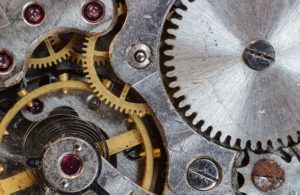 The debate about whether God exists or we, and all that surrounds us, is merely a cosmic accident, continues unchecked.
The debate about whether God exists or we, and all that surrounds us, is merely a cosmic accident, continues unchecked.
Hard-core believers will cling to every word of the Bible as absolute truth, ignoring or rejecting all scientific reasoning.
Meanwhile, the equally hard-core non-believers dismiss the Bible as complete fantasy.
Most of us, however, fall somewhere in the middle ground. We believe in the principles and core values of the Bible, while reserving a large degree of consideration toward the lessons of science. And perhaps the most critical question involves our very existence.
The Bible tells us that God created the human being. Science gives us a long, elaborate sequence of evolution, and the fossil record supports that concept. So what is the truth?
Without getting into the whole evolution/creation argument, we might use a bit of science and a bit of logic to examine the probabilities.
One of the holy grails of science is the search for the perpetual motion machine – a machine that, once set in motion, continues to perform indefinitely without any further application of energy. Our science and engineering community has yet to achieve any such device.
We have found that one of the most basic elements of physics – friction – thwarts our efforts.
Yet, the human body, once set in motion, continues to breathe. The heart in your chest continues to beat, uninterrupted, throughout your life.
Granted, we do fuel our bodies with food, water and air, but the signals that cause us to take a breath, the signals that trigger each heartbeat, happen automatically without our conscious effort. In that respect, each of us is like an organic perpetual motion machine.
Considering that our science cannot accomplish anything near such an effect, we have to consider the likelihood that we function perpetually as an accident of our existence to be highly unlikely.
It would seem more likely that we are created (or designed) using a formula of biology more complex that anything mankind has been able to replicate.
Finally, we must ask ourselves – if our most sophisticated scientific community cannot explain or duplicate the perpetual motion of our breathing or heartbeat, how likely is it that we function in such a complex manner – by accident.
Or is it more likely that we were designed by a higher power – the power we call God?
Logically, we must concede – this is no accident.
